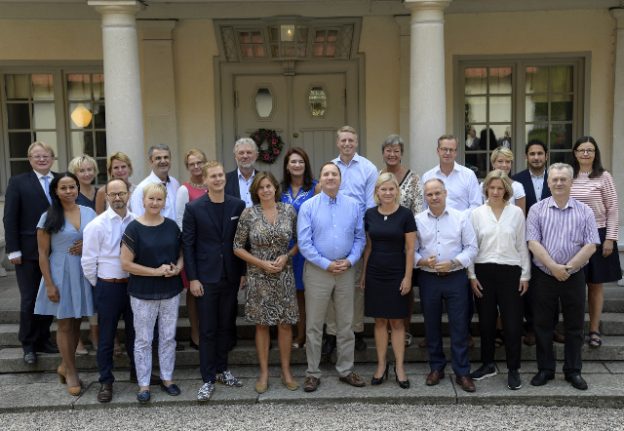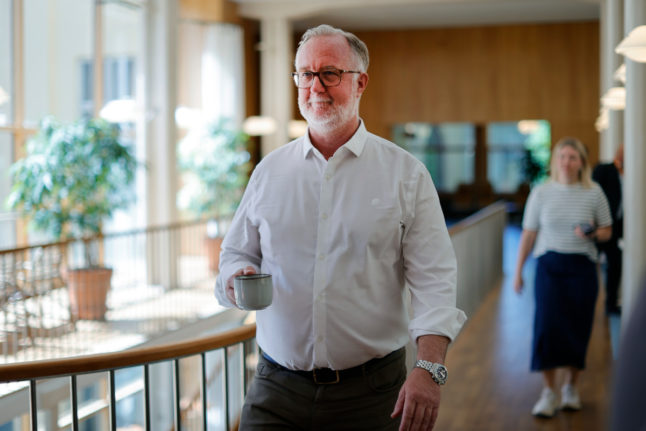The Aftonbladet poll asked Swedes to rate their government ministers on a scale from one to five. Five is 'very good', one 'very bad' and three 'approved'. And in the latest edition from the end of 2016, only five government ministers managed to achieve 'approved' rating or better.
Compared to previous editions of the same poll from 2016 and 2015 however, when only two government ministers achieved that rating, it's actually a slight improvement.
And in the current edition twenty ministers saw their rating improve, while none saw it decline, which will give the Social Democrat-Green government some cause for optimism ahead of the autumn 2018 election. Here are the best and worst performers.
Most popular
Sweden's most popular minister according to the poll is Defence Minister Peter Hultqvist, who achieved a 3.5 rating – up from 2.6 last year. That perhaps explains why PM Stefan Löfven was so keen to keep a hold of him in the face of a failed push by the opposition to launch a no-confidence motion earlier this year.
READ ALSO: No-confidence motion against Hultqvist collapses
Hultqvist was then followed by Foreign Minister Margot Wallström, arguably Sweden's most influential minister at the moment while the country holds a temporary place on the UN Security Council. She was rated 3.1 – up slightly from three the year before.
Next came Minister for Upper Secondary School and Adult Education Anna Ekström (rated three, up from 2.7 in 2016), Enterprise Minister Mikael Damberg (rated three, also up from 2.7) and Justice Minister Morgan Johansson (rated three, up from 2.5).
READ ALSO: Who Swedes want as Prime Minister in 2018
Prime Minister Löfven had an improved rating of 2.9 compared to 2016 (2.6), as did several other high-profile cabinet members like Finance Minister Magdalena Andersson, EU Minister Ann Linde and Culture Minister Alice Bah Kuhnke.

Peter Hultqvist and Margot Wallström. Photo: Henrik Montgomery/TT
Least popular
At the other end of the spectrum, there's bad news for struggling junior coalition partner the Green Party, as their joint spokesperson Education Minister Gustav Fridolin was ranked the least popular minister. He did improve marginally though, being rated 2.2 compared to 2.1 last year.
The next least popular was Social Democrat Migration Minister Heléne Fritzon (2.3, with no previous rating as she only took on her position in 2017). Another Green Party politician, Environment Minister Karolina Skog, was the third poorest performer (2.3 compared to two in 2016), while the party's other joint spokesperson Isabella Lövin was fourth (2.4 compared to 2.2 in the past edition). The fifth worst performer was Social Democrat Minister for Employment and Integration Ylva Johansson (2.5, up slightly from 2.4).

Isabella Lövin (left), Ylva Johansson and Gustav Fridolin. Photo: Hossein Salmanzadeh/TT
The survey was carried out by pollsters Inizio for Aftonbladet between November 28th and December 7th, 2017. It took in the opinions of 1,732 people over the age of 16.
IN DETAIL: How Sweden's foreign policy could change after the 2018 election



 Please whitelist us to continue reading.
Please whitelist us to continue reading.